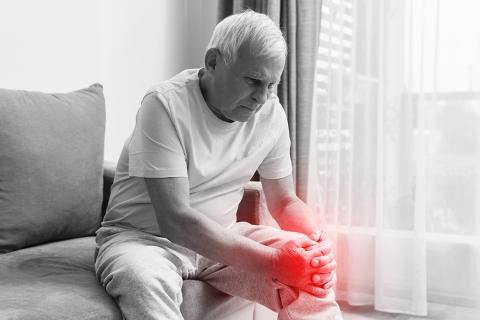
It doesn’t matter if you’re a hardcore athlete or a weekend warrior — sports injuries will happen. And when they do, you might have a difficult time deciding whether or not to see a doctor about your injury or pain, says Dr. Faizan. Although there’s no clear set of rules to tell you if your injury needs to be seen by a doctor, you can use these guidelines to help you decide when it’s time to get medical help.
Regular aches and pains
Suppose that every time you play basketball with your friends you have pain in your ankle. The pain has gotten to be a regular part of your exercise routine. In fact, the only time you experience it is during and immediately after you play. It doesn’t impact your regular daily routine.
This kind of injury is often referred to as an overuse injury. As long as you don’t have swelling, bruising and discoloration, limited range of motion, or locking in your joint, you probably don’t need to see a doctor. Use common sense when caring for your overuse injury. Ice it, brace it while exercising, use an over-the-counter medication like Ibuprofen, and let it rest when you can. But if your overuse injury doesn’t heal when you’d expect it to, or if you experience any of the above symptoms, it might be time to see Dr. Faizan, spine specialist, Nagpur.
For serious injuries
While you’re out running or playing football you injure yourself. It’s not a regular overuse injury. This time it feels different. You’re not able to walk normally; you have swelling, bleeding, discoloration, numbness, pain, or a bone misalignment. When you experience a traumatic injury like this, it’s a good idea to head to your nearest urgent care clinic or emergency room. Dr. Faizan will need to do a physical exam, order x-rays, and maybe provide a cast, splint, or boot. Serious injuries may also require physical therapy for proper healing.
Who to see?
Unless you have an injury that results in a trip to the emergency room, you can choose what kind of doctor you see for your sports injury. If you’re on a team or in an organized sports program, you may have an athletic trainer or a team physician at your disposal. If you’re not on a team, you’ll need to decide who can help you best.
Most family doctors are a good place to start for basic injury care. If your community has a sports specialist or orthopedic surgeon who specializes in sports medicine, that’s a better choice. Most physical therapy groups also help to treat sports-related injuries and may even be able to refer you to a good sports specialist in your community.
It can be difficult to decide if, when, and who to see for your sports injury. When you’re active, injuries are bound to happen, says Dr. Faizan. Know ahead of time what kind of injury needs medical attention, and who to see, so you’ll be prepared when that inevitable injury shows up.
Prevention of sports injuries
You can reduce your risk of sports injuries if you:
-
Warm up thoroughly by gently going through the motions of your sport and performing slow, sustained stretches.
-
Wear appropriate footwear.
-
Tape or strap vulnerable joints, if necessary.
Use the appropriate safety equipment, such as mouth guards, helmets and pads.
-
Drink plenty of fluids before, during and after the game.
-
Try to avoid exercising in the hottest part of the day, between 11 am and 3 pm.
Maintain a good level of overall fitness, particularly in the off season (in the months between playing seasons for a sport).
-
Cross-train with other sports to ensure overall fitness and muscle strength.
-
Ensure training includes appropriate speed and impact work so muscles are capable of the demands of a game situation.
-
Don’t exert yourself beyond your level of fitness. Gradually increase intensity and duration of training.
-
Use good form and technique.
-
Cool down after sport with gentle, sustained stretches.
-
Allow adequate recovery time between sessions.
-
Have regular medical check-ups.
Things to remember
-
Sports injuries are commonly caused by overuse, direct impact, or the application of force that is greater than the body part can structurally withstand.
Common injuries include bruises, sprains, strains, joint injuries and nose bleeds.
-
It is important to see a doctor, as leaving an injury untreated can have far more severe, says Dr. Faizan.

